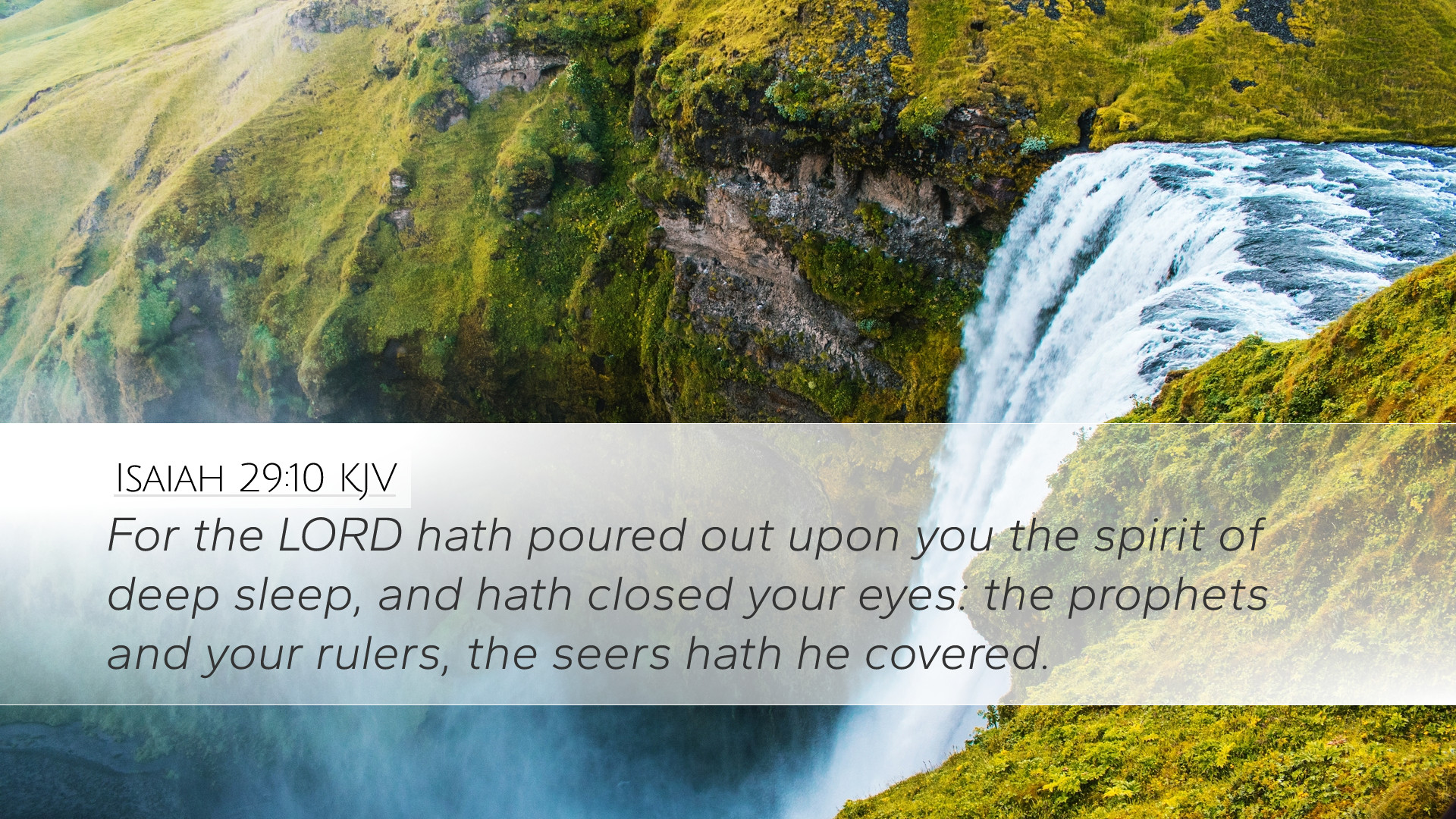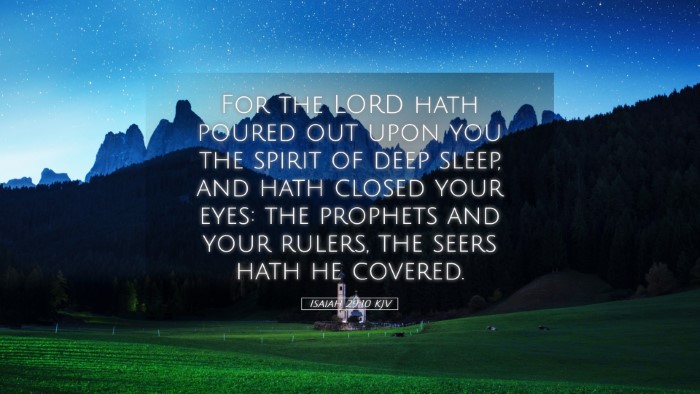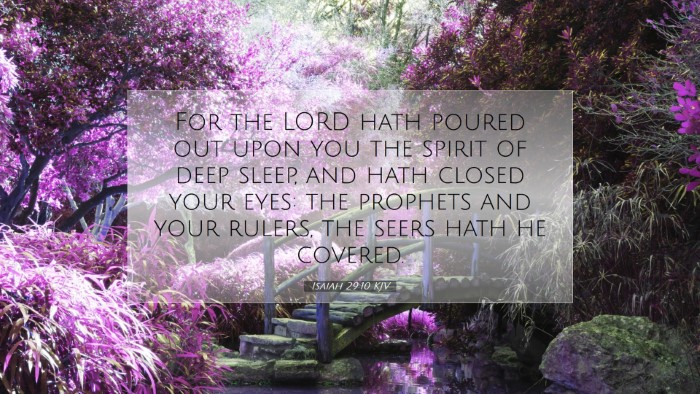Isaiah 29:10 (KJV): "For the Lord hath poured out upon you the spirit of deep sleep, and hath closed your eyes: the prophets and your rulers, the seers hath he covered."
Introduction
The context of Isaiah 29 is a profound discourse on the spiritual state of Jerusalem and Judah. This particular verse, Isaiah 29:10, captures a pivotal moment when God reveals the spiritual blindness and apathy that has overtaken His people. Through the lens of public domain commentaries, we will explore the theological implications and practical applications of this scripture.
Contextual Analysis
To fully appreciate Isaiah 29:10, it is essential to consider its broader literary and historical context. Isaiah’s prophecies often reflect the tumult of a nation straying from its covenantal relationship with God. Early in this chapter, there is mention of Ariel, a term symbolically referring to Jerusalem, which signifies both the city's strength and its impending judgment.
The Spiritual Condition of the People
Henry's commentary emphasizes the 'deep sleep' as a divine judgment, wherein God allows His people to become spiritually lethargic. This sleepiness signifies ignorance and moral decay, leading to a disconnect between the people and their divine destiny. This theme of divine-induced slumber resonates with the New Testament, where Jesus warns against spiritual drowsiness (see Matthew 25:5).
Clarke adds depth to this understanding by suggesting that the closing of the 'eyes' refers not only to a lack of spiritual insight but to the cessation of divine guidance among leaders and prophets. This absence of spiritual vision left the nation vulnerable and blind to the impending consequences of their actions. As Clarke articulates, the rulers and seers are denied the prophetic vision required for true leadership in a time of crisis.
Divine Sovereignty and Human Responsibility
Albert Barnes provides a nuanced perspective on the interaction between divine sovereignty and human responsibility inherent in this verse. The spirit of deep sleep mentioned by the prophet indicates God’s active role in rendering the people unresponsive; however, it also serves as a consequence of their prior choices to reject Him. Barnes posits that God, in His sovereignty, permits this spiritual blindness as a consequence of the people’s persistent sinfulness and rebellion.
This raises critical questions for contemporary theological discourse regarding the mystery of God’s judgment. How does divine sovereignty coexist with human free will? The Israelites, by turning away from God, have positioned themselves in a place of vulnerability, leading to their spiritual stupor as a form of judgment rather than an arbitrary decision by God.
The Role of Prophets and Leaders
Isaiah 29:10 offers a significant indictment against the leaders and prophets of Israel—those charged with guiding the nation towards righteousness. Matthew Henry asserts that the leaders' failure to keep their spiritual fervor resulted in a collective societal malaise. As spiritual guides, their own eyes are closed, rendering them unable to discern God’s will, thus failing to lead the people back to repentance.
This highlights a crucial theme: the responsibility of leaders within the church today. Are they adequately warning their congregations about spiritual complacency? The absence of prophetic insight among leaders creates a vacuum, often leading the people into deeper spiritual apathy.
The Implications for the Modern Church
The echo of Isaiah's warning resounds in our modern context. The dangers of spiritual complacency are prevalent within contemporary congregations. As Clarke pointedly remarks, the blindness of the Israelite leaders serves as a cautionary tale for pastors and congregants alike. The modern church must remain vigilant, actively seeking God’s guidance to rejuvenate spiritual sight.
Furthermore, the notion of God pouring out a 'spirit of sleep' could metaphorically apply to today's believers as well. The church, lulled into complacency by various distractions, must earnestly pursue spiritual awakening through prayer, worship, and the study of the Word.
Conclusion
Isaiah 29:10 encapsulates a profound message concerning the consequences of spiritual apathy and the type of leadership that both reflects and influences a community’s relationship with God. As Matthew Henry, Albert Barnes, and Adam Clarke articulate, the warning against complacency remains relevant, calling for self-examination among both leaders and laity in today’s context.
It serves as a compelling reminder for all—that we remain vigilant, not complacent, fostering a culture that prioritizes spiritual awakening over apathy. The Lord’s desire is not for His people to be in slumber but rather to awaken to the truth of His Word and the necessity of a vibrant relationship with Him.


